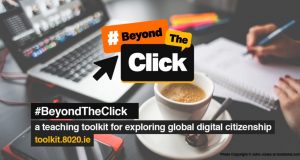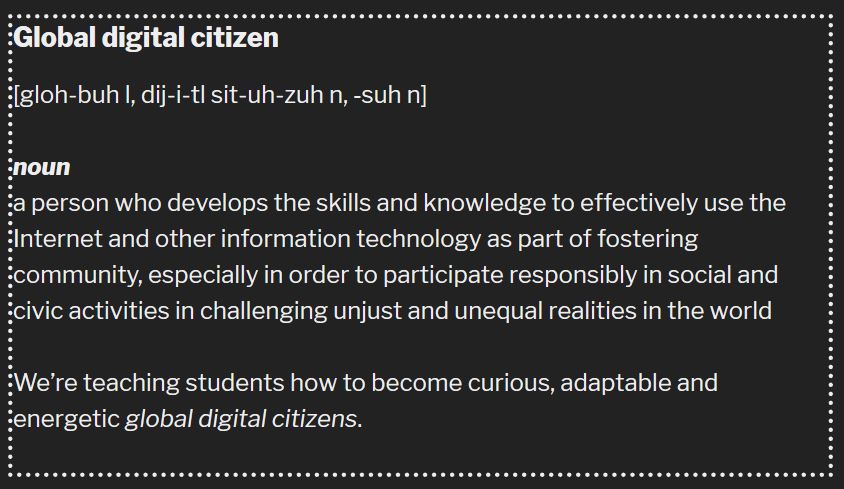Resource Title
#BeyondTheClick: a teaching toolkit exploring Global Digital Citizenship
Summary
#BeyondTheClick is a digital development education toolkit for educators that supports exploration of digital landscapes and tools (social media, digital tools etc.) and how these can be used to in education for sustainable development in a human rights and justice context in a world of deep (and deepening ) inequality.
Resource Details
Description
Available from:
Access the digital toolkit #BeyondTheClick online at toolkit.8020.ie
- Find out about the team behind the collaborative toolkit project and the year-long consultation to develop it
- For more, visit 8020.ie or queries to info [at] 8020.ie


